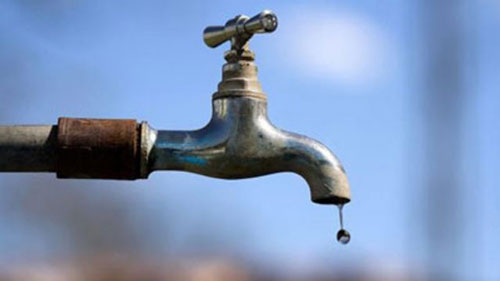Pakistan’s water situation is critical and presents significant challenges. Its per capita water availability is below 1,000 cubic meters per year, considered the threshold for water stress. Several factors contribute to Pakistan’s water crisis, including population growth, inefficient water management practices, climate change impacts such as erratic rainfall patterns and glacial melt, and inadequate water storage and distribution infrastructure.
The situation is further complicated by water pollution, over-extraction of groundwater, and disputes over water allocation between provinces and neighbouring countries. These challenges pose serious threats to Pakistan’s agricultural sector, which is heavily dependent on irrigation, as well as to domestic water supply and sanitation.
Despite these challenges, there are opportunities to address Pakistan’s water issues. Efforts to improve water management practices, enhance water efficiency in agriculture, invest in water infrastructure, promote water conservation measures, and strengthen institutions responsible for water governance can help mitigate the crisis and create opportunities for sustainable water use and management.
The International Water Management Institute (IWMI) plays a significant role in Pakistan’s water sector. IWMI is a research organization dedicated to improving water and land management for food security, livelihoods, and the environment. In Pakistan, IWMI works on various aspects of water management, including research on water resources, irrigation systems, groundwater management, water productivity, and climate change adaptation.
IWMI’s contributions in Pakistan include conducting research to understand water challenges and develop solutions, providing technical assistance and capacity building to government agencies and stakeholders, and facilitating knowledge exchange and collaboration among water sector actors. IWMI’s work in Pakistan contributes to addressing the country’s water crisis and promoting sustainable water management practices.
The Federal Ministry of Water Resources is instrumental in tackling water challenges across industrial, domestic, and agricultural sectors through comprehensive management strategies. It emphasizes water conservation, promoting efficient use through modern irrigation technologies like drip and sprinkler systems in agriculture. The ministry also oversees the development of crucial infrastructure, such as dams and reservoirs, to optimize water distribution and storage. Legislative frameworks ensure responsible water use and pollution control, supported by international collaborations like the Indus Waters Treaty. Public awareness campaigns further educate citizens on sustainable water practices, reinforcing the importance of preserving Pakistan’s water resources for future generations.
Here are some key opportunities and potential strategies for overcoming the water crisis:
Investment in Water Infrastructure: Pakistan can invest in building and upgrading water infrastructure, including dams, reservoirs, canals, and irrigation systems. Improved infrastructure can enhance water storage capacity, regulate water flow, and improve the efficiency of water distribution, especially for agriculture, which is the largest water user in the country.
Water Conservation and Efficiency: Promoting water conservation practices and enhancing water use efficiency across sectors can help reduce wastage and optimize water resources. This includes drip irrigation, rainwater harvesting, modernizing irrigation techniques, and implementing water-saving technologies in industries and households.
Groundwater Management: Given the overextraction of groundwater in many parts of Pakistan, sustainable groundwater management practices can be implemented. These include monitoring and regulating groundwater usage, promoting recharge techniques such as artificial recharge and watershed management, and incentivizing farmers to shift towards less water-intensive crops.
Climate Change Adaptation: Pakistan can develop strategies to adapt to the impacts of climate change on water resources, such as changing precipitation patterns and glacial melt. This may involve improving early warning systems for floods and droughts, implementing climate-resilient agricultural practices, and integrating climate considerations into water infrastructure planning and management.
Transboundary Cooperation: Addressing water-related disputes with neighbouring countries, particularly India, through dialogue, negotiation, and cooperation can help ensure equitable and sustainable allocation of shared water resources. This may involve diplomatic efforts, joint water management initiatives, and the implementation of international agreements such as the Indus Waters Treaty.
Policy and Governance Reforms: Strengthening water governance frameworks, enhancing regulatory mechanisms, and improving institutional capacity can contribute to more effective water management. This includes reforming water laws and policies, decentralizing water management responsibilities, empowering local communities, and promoting participatory approaches to decision-making.
Research and Innovation: Investing in research and innovation to better understand water challenges, develop innovative solutions, and harness new technologies can drive progress in water management. This includes supporting scientific research, fostering collaboration between researchers, policymakers, and practitioners, and promoting adopting best practices and innovative technologies in water management.
Rainwater Harvesting: Implementing rainwater harvesting as a nature-based solution to recharge groundwater can significantly alleviate water scarcity. Last year’s monsoon season brought substantial rainfall, with some areas receiving up to 30% above the average. If appropriately harvested, this excess water can be stored and used to recharge aquifers, ensuring a more sustainable water supply. This year, monsoon rains are expected to be above average in many parts of the country, presenting an opportunity to maximize the benefits of rainwater harvesting and improve water security.
By pursuing these opportunities and implementing holistic and integrated approaches to water management, Pakistan can work towards overcoming its water crisis, ensuring water security for its population, and promoting sustainable development and prosperity.
 The author is a communications professional with over thirty years of extensive experience in journalism, media, communications, and branding strategies. He has worked in the government sector and with the United Nations and is currently serving the International Water Management Institute (IWMI) Pakistan as the Communications Specialist.
The author is a communications professional with over thirty years of extensive experience in journalism, media, communications, and branding strategies. He has worked in the government sector and with the United Nations and is currently serving the International Water Management Institute (IWMI) Pakistan as the Communications Specialist.
Disclaimer: The views and opinions expressed in the article belong solely to the author and not necessarily to the author’s employer, organization, or other group or individual.









